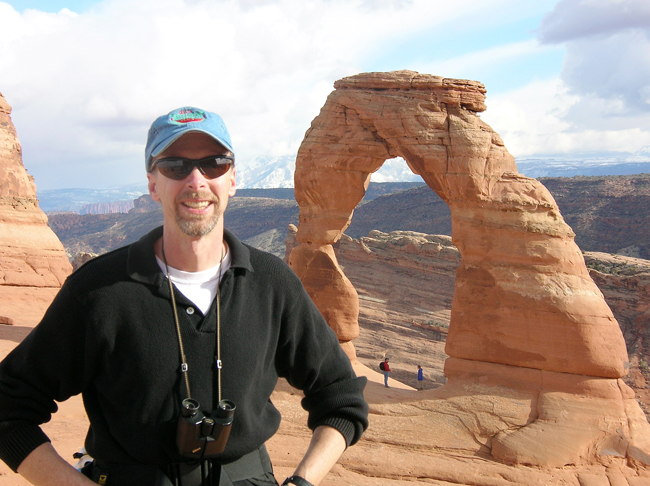Professor receives award for Web site
USU’s professor Robert Schmidt received the Northeast Extension Directors’ Award of Excellence last July for his work developing the Internet Center for Wildlife Damage Management (ICWDM), as part of a five-person, multi-university team.
Awarded on July 14, the honor is given to “outreach education programming that has achieved outstanding accomplishments,” according to the NEDA Web site.
“My part is small, but unique. It’s called extension,” Schmidt said about his involvement in the project.
For the last five years Schmidt has volunteered to manage the question and answer section of the Web site.
“Our goal is to have high-quality information dealing with human/wildlife interactions at peoples’ fingertips,” he said.
The ICWDM team consists of four volunteers and one part-time employee. Through the Web site, www.extension.org, they respond to hundreds of questions a year, he said.
“People are living in the world of bats, deer, squirrels, skunks and raccoons,” Schmidt said, and most human/wildlife interactions involve those animals. Responding to wildlife questions is complicated by the reality that there are different approaches and philosophies in dealing with wildlife.
“The challenge is to tailor the response give people a range of options,” he said. “These are real people and they deserve our best effort to answer their real concerns.”
Once a question has been submitted, the response is peer reviewed by two specialists. Schmidt’s job is to manage and oversee this process. The team has an average response time of under 48 hours.
“If someone’s asking about how to get raccoons out of their attic, this only works because we respond so quickly,” he said.
If the question has a broader application, it goes through another review process and is published on the Web site.
A rapid response isn’t the only objective, however. Research-based, reliable counsel is the goal.
“This is especially important where pesticides are involved,” he said.
Many common practices in the past are now known to be dangerous.
“Twenty years ago, extension meant basically one thing: pamphlets,” he said.
With a limited number of researchers on any given topic, limited opinions would be passed around and plagiarized in communities across the U.S., he said. Now the extension Web site solves this problem with its Wikipedia-inspired, dynamic, revisable interface, he said.
While Schmidt focuses on the wildlife damage aspect of extension, there are also community, farm, disaster, family and youth categories.
“I’ve asked questions to it,” Schmidt said (he inquired about how to better control apple moths). “I’ve learned from participating how to give people the information they need.”
Schmidt said that the quality of the system as well as the efficiency of the people running it was the biggest contributor to the honor.
“We won this award because, on a shoestring budget, we’ve developed a personalized, high-quality response system. That’s where the rubber hits the road. Whether you’ve got deer eating your flowers, or coyotes chasing your cats around the neighborhood, extension can probably help. This is real information for real people and real problems,” he said.
-ben.abbott@aggiemail.usu.edu

